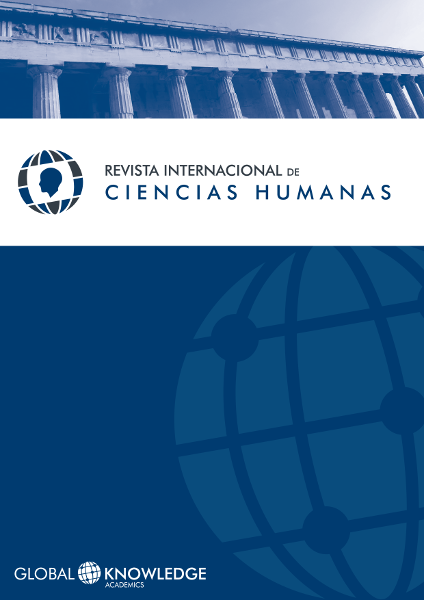Between eBook, Education and Reading: the Technological Development of the Educational Environment
DOI:
https://doi.org/10.37467/gka-revhuman.v4.754Keywords:
Education, eBook, Digital, Educational Innovation, LearningAbstract
For over ten years we talk about electronic book, e-text, eBook and digital skills are the same things as in contents, applications, and software. From Prensky in 2001 has begun the new "fear" as McLuhan had already explained in the Seventies, and from this year the educators, teachers, publishers and writers think that machines won their skills and professionalism. The research on this topic has already been closed with first results with young primary school students. Has been made a qualitative questionnaire, unique in its kind and effective to evaluate the "digital natives" of the 21st century. The theme explored is the use and knowledge of the eBooks in an educational setting Primary School, assessing the actual existence of the electronic media, and the interest in new digital capture readers. From the methodology of Bloom's theory (1956), the questionnaire, and the entire research influence the area of education and learning to be (Rosati, 2004) to evaluate the new electronic media. It has come to understand as this spread, especially understood the possible use of new tools for reading, and the possible development of new forms of reads and writes (Martos-Núñez y Campos Fernández-Fígares, 2013) in teaching and educational area. The results allow reading reality native with a critical, reasonable, and technologically competent look. Research enables develop new educational ideas, and learning models through electronic technology that continues to change the habits of the various actors of the educational reality, and making a difference in the complex narrative-textual.
References
Barthes, R. (1970). S/Z. Paris: Édition du Seuil.
Bloom, B. (1956). Taxonomy of Educational Objectives. Boston: Ally and Bacon.
Bocciolesi, E. (2014). EBook, re-mediación y e-literacy. Evolución y desarrollo del libro electrónico desde una perspectiva digital. Álabe, 9. [ www.revistaalabe.com]
Bocciolesi, E. y Truscello L. (2013). El mercado de los eBooks: perspectivas sociales y tecnologicas. Vega Journal, 1, pp. 91-100.
Bocciolesi, E., Medina-Rivilla A. y Pérez-Navio, E. (2015). Ebook: el futuro del libro. aplicación y uso del texto electrónico en entorno didáctico y de formación. En B. Valenzuela, M. Guillén-Lúgigo y A. Medina-Rivilla (Eds.), Procesos Educativos: Desafíos y Retos en el siglo XXI. España: Pearson.
Bolter, J.D. (1984). Turing’s man: Western culture in the computer age. North Carolina: University of North Carolina Press.
Bolter, J.D. (1991). Writing Space: The Computer, Hypertext and the History of Writing. New Jersey: Lawrence Erlbaum Associates Ltd.
Calvino, I. (1985). Six Memos for the Next Millenium. Cambridge: Harvard University Press.
Chartier, R. (1995). Forms and Meanings: Texts, Performances and Audiences from Codex to Computer. Philadelphia: University of Pennsylvania Press.
Cordón-García, J.A., Alonso-Arévalo, J. y Gómez-Díaz, R. (2013). Social Reading: Platforms, Applications, Clouds and Tags. Cambridge: Chandos Publishing.
Darnton, R. (2009). The case for the books. New York: Public Affairs.
Dewey, J. (1909). How We Think. Buffalo: Prometheus Book.
Domínguez-Garrido, C., Leví-Orta, G. D. C., Medina-Rivilla, A. & Ramos-Méndez, E. (2013). Armonización de competencias entre la educación secundaria y la universidad. Riaices, 10 (1), pp. 5-13.
Gómez, E. L., & Navío, E. P. (2013). Formación permanente del profesorado y práctica docente intercultural: contenidos actitudinales y complementariedad competencial service teacher training and intercultural teaching practice: attitudinal contents and integration of competences. En Espiral. Cuadernos del Profesorado, 6 (12), pp. 32-42.
Landow, G.P. (2006). Hypertext 3.0. Critical Theory and New Media in an Era of Globalization. Blatimore: Johns Hopkins University Press.
Martos Núñez, E. y Campos F.-Fígares, M. (Eds.). (2013). Diccionario de nuevas formas de lectura y escritura. Madrid: RIUL-Santillana.
Medina-Rivilla, A. (1997). Formación de Educadores de Personas Adultas. Madrid: UNED.
Medina-Rivilla, A. y Domínguez-Garrido, M.C. (1995). Enseñanza y Currículum para la Formación de Personasl Adultas: el Profesional de la Enseñanza de Adultos. Madrid: EDIPE.
Medina-Rivilla, A., Domínguez-Garrido, M.C., Medina, M.C. (2012). Formación de estudiantes adolescentes y jóvenes: Inclusión de personas de diversas culturas (Romaní). Civitas educationis, 1 (2), pp. 71-93.
Ong, W.J. (1982). Orality and Literacy. The Technologizing of the Word. London-New York, Me-thuen.
Pérez-Navío, E. (2003). La Formación de Personas Adultas para su integración socio-labora. Revista Guadalbullón, 11, pp. 117-135.
Pérez-Navío, E. y Rodríguez Moreno, J. (2013). Necesidades Formativas del alumnado adulto en España. Vega Journal, 1, pp. 71-85.
Rosati, L. (2004). Didattica della cultura e cultura della didattica.«La sostenibile leggerezza del sapere». Perugia: Morlacchi.
Wolf, M. (2007). Proust and the squid. The story and science of the reading brain. New York: Harper Collins Publisher.
Downloads
Published
How to Cite
Issue
Section
License
Those authors who publish in this journal accept the following terms:
- Authors will keep the moral right of the work and they will transfer the commercial rights.
- After 1 year from publication, the work shall thereafter be open access online on our website, but will retain copyright.
- In the event that the authors wish to assign an Creative Commons (CC) license, they may request it by writing to publishing@eagora.org









